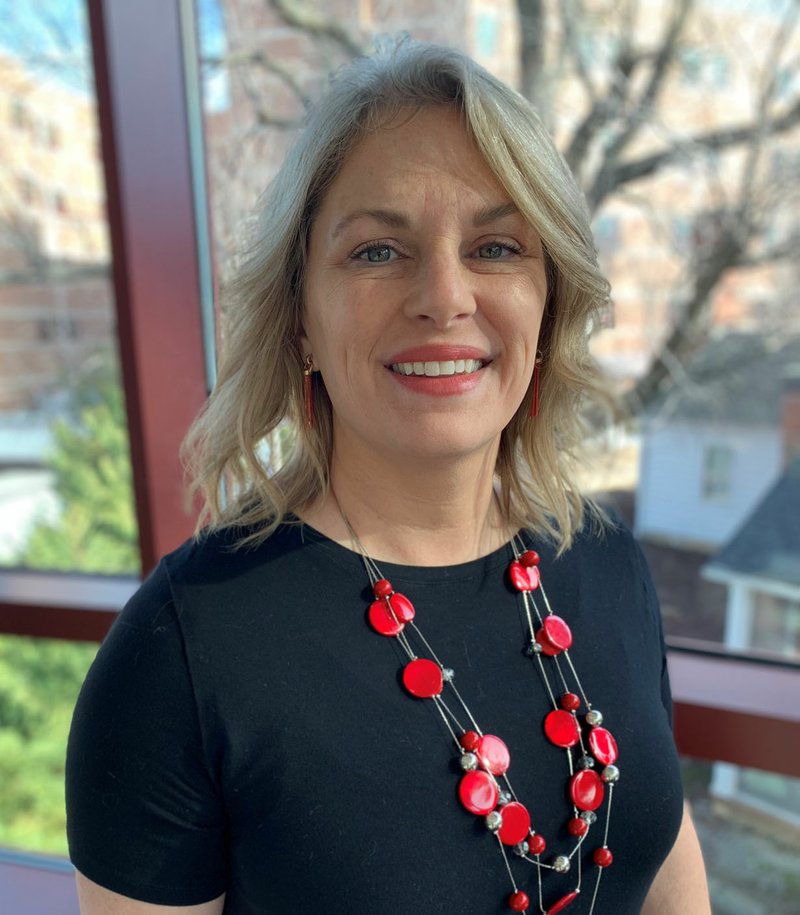There's nothing easy about dying -- and it doesn't get easier just because everyone knows it's coming. That's where the social workers that are part of Washington Regional's palliative care team come into the picture. Professionals like Melissa Lowrimore "teach patients and families how to cope with anticipatory grief and how to prepare for an impending loss."
Lowrimore will be among the experts who will speak March 1 at a grief conference that is a cooperative effort between Washington Regional Hospice and Mount Sequoyah Center. The conference is intended primarily for professionals who deal with grief as part of their jobs, but Lowrimore says there are lessons that can help family members down the road.
Grief Conference
When: 7:30 a.m.-5 p.m. March 1
Where: Bailey Center at Mount Sequoyah in Fayetteville
Cost: $65
Information: 443-4531 or email emily.gentry@mounts…
FYI: Other speakers include Dr. Stan Bradley, medical director of Washington Regional Hospice, and Dr. Steven Dollins, medical director of Vantage Point NWA.
"The task of mourning is never done," she enumerates. "Give yourself permission to feel emotions. Spend time together now. Practice love, forgiveness and letting go."
And, she adds, "believe anticipatory grief is real."
Lowrimore defines anticipatory grief, her topic at the conference, as "grief that occurs before a loss, generally when one gets the news that death is likely or imminent." As a palliative care social worker, her expertise serves both the dying and those surrounding him.
"For the patient, that means doing self-reflection, completing any unfinished business, saying I love you, and thank you," she says. "This is also an important time for the dying person to visit with a pastor if they so choose; most of the time there are a lot of fears about dying that need to be expressed to a pastor. Also, the family of the dying person needs someone to tell their story to -- someone who will listen without judgment. They also need to begin thinking about what the future is going to look like without their loved one."
It's not that anticipatory grief is so very different from any other kind -- including the range of emotions from sadness to anger to denial, Lowrimore says. "However, they differ in that emotions tend to happen in waves," she explains. "Some days might be very difficult. Other days you may not experience grief at all.
"How do you mourn someone who is still alive? With anticipatory grief, people have a fear of what the death will look like, anger, a desire to talk to someone who will not judge, guilt prior to a loved one's death especially if they are suffering, intense concern for the dying person, and sleeping and memory problems."
Lowrimore counsels that there are "tools to help frame and identify" aspects of grief, but there are no rules. "It is very important to remember that everyone grieves differently," she says.
"The most important thing a grieving person needs to know is that the task of mourning is never done," she explains. "I come along beside the grieving person to help them begin to make sense of what is happening right now. They want to know what to do next, should they express sadness in front of the dying loved one, is it OK to begin planning the funeral?
"When someone finds out their life is coming to an end, priorities change," she explains. "The dying person certainly goes through anticipatory grief just like a family member. They mourn relationships, things that have not been done, time, not being able to see children grow up, not being able to walk a daughter down the aisle, can't see children graduate.
"In my assessment of patients and families I listen for statements that address a person's spiritual well-being or spiritual despair, for example: 'Will death be painful?' 'Where will I go when I die?' 'I was saved as a child but have not lived a good life.' All of these are cues that a chaplain is needed. The Palliative Care team work closely together and are in constant communication to ensure each patient's needs are addressed.
"Spiritual well-being offers some protection against end-of-life despair in those for whom death is imminent," Lowrimore adds. "WRMC Palliative Care is made up of a team; our service would not be effective without each member of our team providing their specialized services. Palliative Care touches the physical, emotional and spiritual aspect of a person's life."
Lowrimore credits her passion for her job and compassion for the grieving to her "Great-Grandma Molly," with whom she spent many happy days of her childhood in Elkins, "listening to her stories and helping around the house."
"Molly was diagnosed with Alzheimer's dementia when I was in the seventh grade," she remembers. "She lived independently for a few years but then had to be moved to a nursing home because her needs were too great for family to provide care. As I watched her memory dwindle away, I realized that I really wanted to help people live better quality lives."
NAN Religion on 02/16/2019

